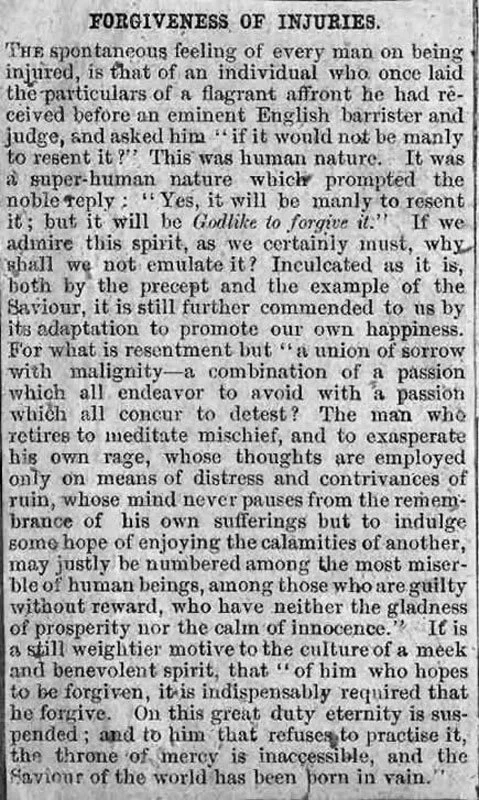FORGIVENESS OF INJURIES
The spontaneous feeling of every man on being injured, is that of an individual who once laid the particulars of a flagrant affront he had received before an eminent English barrister and judge, and asked him “if it would not be manly to resent it?” This was human nature. It was a super-human nature which prompted the noble reply: “Yes, it will be manly to resent it; but it will be Godlike to forgive it.” If we admire this spirit, as we certainly must, why shall we not emulate it? Inculcated as it is, both by the precept and the example of the Saviour, it is still further commended to us by its adaptation to promote our own happiness. For what is resentment but “a union of sorrow with malignity – a combination of a passion which all endeavor to avoid with a passion which all concur to detest? The man who retires to meditate mischief, and to exasperate his own rage, whose thoughts are employed only on means of distress and contrivances of ruin, whose mind never pauses from the remembrance of his own sufferings but to indulge some hope of enjoying the calamities of another, may justly be numbered among the most miserable of human beings, among those who are guilty without reward, who have neither the gladness of prosperity nor the calm on innocence.” It is a still weightier motive to the culture of a meek and benevolent spirit, that “of him who hopes to be forgiven, it is indispensably required that he forgive. On this great duty eternity is suspended; and to him that refuses to practice it, the throne of mercy is inaccessible, and the Saviour of the world has been born in vain.”
